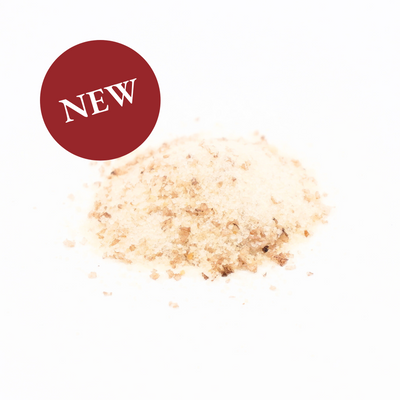EVOO Chemistry: Pyropheophytin
Pyropheophytin... it's a bit of a mouthful, so we often refer to this compound as PPP. In olive oil, pyropheophytin forms as chlorophyll breaks down. As such, PPP can be present at high amounts in refined olive oil; a useful indicator in uncovering fraudulently-labelled oil.
Extra virgin olive oil contains chlorophyll that was present in the olive leaves, as small bits of leaf matter inevitably end up in the mixture during crushing. It does not adversely affect the oil, but it can be a useful compound to analyze to learn about the age and authenticity of different olive oil grades.
Chlorophyll and Pyropheophytin
As EVOO ages, it slowly oxidizes. As we have discussed in the previous blogs of this series, certain oxidizing agents greatly accelerate the rate of oxidation relative to the "background rate" that occurs when your oil is treated and stored with care. The small amounts of chlorophyll in EVOO are not impervious to this break down, and it slowly gets converted to pyropheophytin. The very low PPP percentages on varietal tasting cards at Evoolution indicate that our oils are fresh and have been stored properly to limit that chemical conversion.

Pyropheophytin as a Refinement Indicator
Extra virgin olive oil cannot be produced using any added heat; rather the oil must be extracted solely by mechanical means. Using high heat to extract the oil from olives damages the chemistry and flavour of the oil and means that it cannot be labelled as extra virgin... at least in theory. Fraudulently-labelled "EVOO" that has been treated with such heat is difficult for a consumer to discern, but laboratory analyses can uncover the truth. Adding heat into the equation accelerates the conversion of chlorophyll to PPP, resulting in high enough levels to detect in a lab.
If only we were all able to access such technology, fraud in the olive oil industry would undoubtedly dwindle. For the time being, looking for EVOOs with low values of PPP (<5%) helps ensure you are getting only the freshest, quality extra virgin olive oil.




This is great information, there’s nothing quite like great, fresh Olive Oil!
Yes I’ve heard of this and it’s a shame that such practices are going on. Just like the practice of adding syrup to honey. Your products are wonderful and make great gifts.
This is very useful thank you. We have to be really careful what oil we buy!
Leave a comment